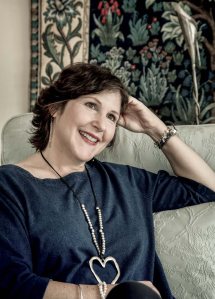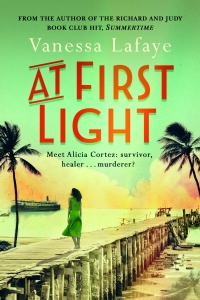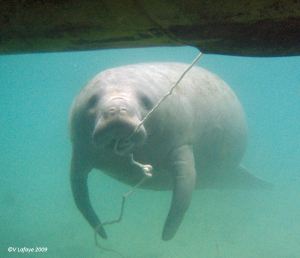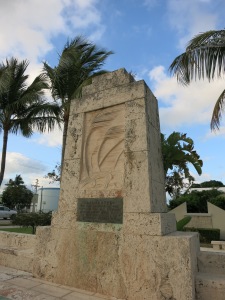 On the twenty-eighth of February this year, we lost our fabulous, unique Vanessa. Almost a month later when family and friends gathered to say goodbye to her, a few people approached me and said, ‘What about a final entry for her blog?’
On the twenty-eighth of February this year, we lost our fabulous, unique Vanessa. Almost a month later when family and friends gathered to say goodbye to her, a few people approached me and said, ‘What about a final entry for her blog?’
This blog, ‘Living While Dying’, which she wrote primarily to raise awareness of the reality of incurable secondary breast cancer, was read by many in the months prior to her death. Here, she wasn’t backward at coming forward, sharing her anger and frustrations at having her plans, hopes and dreams all eradicated by the disease that she referred to as her ‘stalker.’ If you haven’t read the earlier entries, I urge you to. It’s not always an easy read but, by Christ, it’s a humbling one – and her words, just like those in her novels, have a powerful reach. And the more I thought about it, the more I agreed that the blog deserved one more entry, and Vanessa’s ‘superman’, her husband, James, agreed that I could write one. So, I’m posting this final entry on Sunday 17th June which would have been her fifty-fifth birthday.
For those who have read it before, you may remember that she used to start every post with the same introductory format, describing exactly what she was going through at that time. I’m quite sure she wouldn’t mind that I’m using the same approach to best explain how those who knew her feel today on her birthday:
SYMPTOMS: Heartache – tenderness in the top left area behind the ribs. Tightness, discomfort, in the solar plexus.
PAIN LEVEL: Variable, dependant on the memories that hit.
TREATMENT: Remember her laugh, that slightly irreverent chuckle. Remember her telling you not to cry. Just remember her; and when you do, make sure her image is smiling.
FEATURED EMOTIONS: Sadness, anger, denial, determination, gratitude, awe.
Yes, we’re all of us, still sad and angry that her life was cut far too short by the ravages of that bloody awful disease. Yes, there are many days when we need denial and pretend she’s not gone. But mostly, when I think of Vanessa, the strongest emotion I have is one of admiration for her determination and deep gratitude that I knew her. Fifty-five… If she were here for this birthday, she’d probably use one of her favourite expletives and create an alliterative sentence: ‘I’m a fifty-f***ing-five-year young fledgling,’ she’d say before whispering something rude to her stalker…
I first met her only a few years ago through our writing group, The Prime Writers, and ours was one of those fast-growing, yet vital friendships that we both knew was a rare find. I felt as if I’d known her forever and was so grateful to have this woman whom I could talk to about everything and anything, but particularly, the strange world of published writers that we both found ourselves navigating. We beta read each other’s books as we wrote them; cheered each other on when we’d done something brilliant and pulled one another back when the prose wasn’t so great.
I have only ever known the kick-ass Vanessa with cancer – but perhaps that’s one of the reasons ours was a friendship that packed in so very much in just a few years. We had many writing retreats together; where I’d drive the four-hour trip to the edge of Wales and she’d chat, and we’d put the world to right. We’d brainstorm whatever we were both working on and honestly, more wrinkles were ironed out from our respective works-in-progress during those trips than at any other time.
At breakfast, she’d be up first, dressed in her pink sweatshirt, joggers and slippers or her Christmas jumper in October, and as we all tucked into our various fares, she’d pipe up, ‘Who’s around for afternoon tea? Have you seen the size of those scones?!’ And at three p.m. we’d all gather and do just that, eat titan fruit scones and discuss our word-count and never, not once, during those times would Vanessa mention the word cancer. It was a time for us all to be writers, for her to feel normal in her abnormal situation and I know she loved it. I and the other Prime Writers – we will miss those times – though next week, on the Summer solstice, in honour of Vanessa and her beautiful novel Summertime, we’re getting together to celebrate her and raise a glass to her life, her passion and her legacy.
It’s that passion I will never forget. The Vanessa I knew was inspirational. That’s a word that’s often bandied about but in her case it’s completely apt. She was passionate about right and wrong. She was passionate about their cats! She was passionate about her singing with Mother’s Jam, and leading her choir, who all gave her the most fabulous, loving, send-off that day in March… She was passionate about her writing. She was passionate about her family and friends. She was passionate about James whom she said, ‘made her laugh her ass off every day.’ And she was passionate about love. Her last words to me on the phone the day before she died were ‘Love you.’ And despite the scientist in her, one of her blog posts urged people to try and harness that power of love in her direction to help extend her life. Oddly, I think it worked, on some level, in some small time-frame – it worked. Vanessa adored that Map of Love that she’d created from people’s responses, global hearts of love, from Marlborough to Milan, from Kerry to Kazakhstan. That’s how she inspired.
And not just because of her public sharing of this blog. Her novels, mostly written with her stalker, Cancer, hovering in the background, are a legacy. Summertime, At First Light and lastly Miss Marley (where Vanessa indulged her love of Dickens’ A Christmas Carol to create a fictional sister for Jacob Marley), will remain – all acts of love from her. She nurtured words like no other writer I know, so mindful of her readers, only allowing herself to write the next paragraph when the last was as perfect as it could be. Vanessa died before finishing her latest work, ‘Miss Marley’, but I’m thrilled to say that it IS being finished on her behalf, by one of our very own Prime Writers, and it will be released later this year on November 1st. Her editor at HQ, Kate Mills, who will publish the novel, said:
“Vanessa was a remarkably gifted writer, someone who made it look so easy, but worked hard – really hard – to get things just right. She could bring a character to life in a beat. She could make you laugh and then weep in the turn of a page.”
Inspirational, yes. Saintly or martyr-like, never. She told it like it was; called a spade a spade. She was unafraid to be afraid, admitting openly that dying scared her because she had so much yet to do. Describing herself as ‘the luckiest unlucky person,’ she was determined to squeeze every last drop of life, saying, ‘I refuse to let this disease ruin my life before it ends it.’ And that, the way she did that, was both awesome and humbling. I will never forget her bravery. And while she felt determined, combative, sad, angry, happy, grateful, she also just wished that it could be different. She wanted to stay with ‘Superman’. She just wanted to live.
And now she’s gone. There’s an empty space where she should be. It’s hard to believe and nothing about it is fair or right. She left us too soon. None of us were ready – prepared maybe, but not ready.
Happy Birthday, Vanessa, our wonderful friend.
You were special. You were vital. And you are missed.







